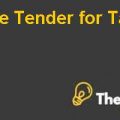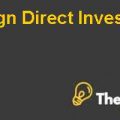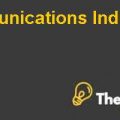
Hansson Private Label Case Solution
Introduction
Hansson Private Label is a corporation that manufactures personal care products like soap, shampoo, mouthwash, and sells them under the brand label. The firm sales have grown rapidly over the years. The retail customers want to increase HPL’s share of their private label manufacturing. Hansson was an entrepreneur who spent nine years buying manufacturing businesses and selling them for profit, after improving their efficiency through increasing sales.
He bought HPL for 42 million; while buying HPL, he spent 25 million through equity and 17 million through debt. Since debt ratio is lower than equity ratio, this means that company is not risky, and it has no financial risk. Hansson’s assessment of private label was achieving its growth because Hansson was focusing on manufacturing efficiency, expense management, and customer service. When the sales of the company grew, he decided to expand their business. He had four plants, and all these plants are operating more than 90% of their capacity. He was worried about the risk, as he wanted to expand their business because of repaid growth and significant value creation. He also had the risk of strong relationship with a big retailer. Previously, retailers carried the sales of private labels at a cheaper rate than national branded products. Currently, the company is continuously improving and customers are attracted to the product. Moreover, sales of the company will also increase. The result of improvement in the private label will attract more customers. The company increased their profit by capturing a greater share of the value chain. As the retailers reduced their cost and charged higher price on the product, there was no change in the acceptance of private label goods. The price was a huge opportunity for retailers to earn more profits.
Business opportunity:
HPL is facing four years of low growth rates and violent competition; HPL has the opportunity to expand its production and increase their profit by signing a three year contract with its biggest client in the personal care products line. However, this opportunity has some risks. The initial investment $45 million should be necessary for expansion also, the necessary investment would double the debt of HPL, and significantly it will increase the financial leverage of the company. If the economic conditions change, then it will effect the business financials. Along with this, client financial distress will be very riskier for HPL, and it will not be able to maintain financials stability.
Industry Trends: (Personal Care Product Market and private label industry)
The personal care product market of the company was growing. The sales of the personal care product were 21.6 billion in 2007. The volume of the company was increasing more than 1%. The average growth of the company sales was 1.7%. There is huge competition; the company is offering 80,000 new products each year. The private label brand market of the company was also growing as the company was improving the quality in private labels, which led to increased acceptance by customers; the sales of Private label exceeded to $70 billion in 2007. HPL's has a good opportunity of growth in private label. The company can increase their profit.
Investment proposal
HPL's has stable revenue. Most of the customers prefer the private label product. The company was very efficient in decreasing the cost of goods sold and so the manager of the company decided to expand their business to serve their largest customers efficiently. The sales of the company were growing in USA, as well as outside of USA...............
This is just a sample partial case solution. Please place the order on the website to order your own originally done case solution.









